Information on the Development Facilities
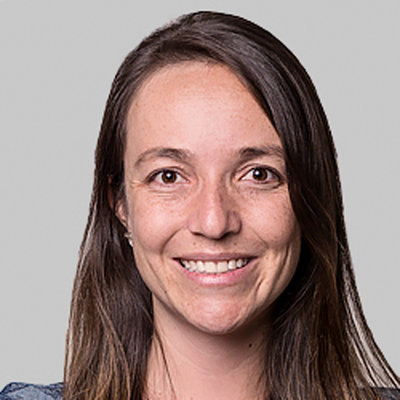
Latin America and the Caribbean
and sub-Saharan Africa
Finance in Motion GmbH

The eco.business Fund Development Facility for Latin America and the Caribbean has published a special report to mark its 5th anniversary.
The report describes the milestones achived by the facility over the past 5 years and tells the story of a sustainable transformation of the financial sector in Latin America and the Caribbean.
Read the full report.
Operating alongside the fund’s investment activities are the eco.business Development Facility for Latin America and the Caribbean and the Development Facility for sub-Saharan Africa. Both Facilities work to maximize and deepen the impact of the fund in their respective regions. They support financial partner institutions, companies and producers through a broad array of tailored technical assistance projects designed to promote the adoption of sustainable business practices. These projects range from improving environmental and social risk management capacities within local financial institutions, providing training sessions on sustainable production practices for producers, supporting corporates in sustainable sourcing strategies to conducting feasibility studies for sustainable tree nurseries as well as country markets and deforestation assessments studies.
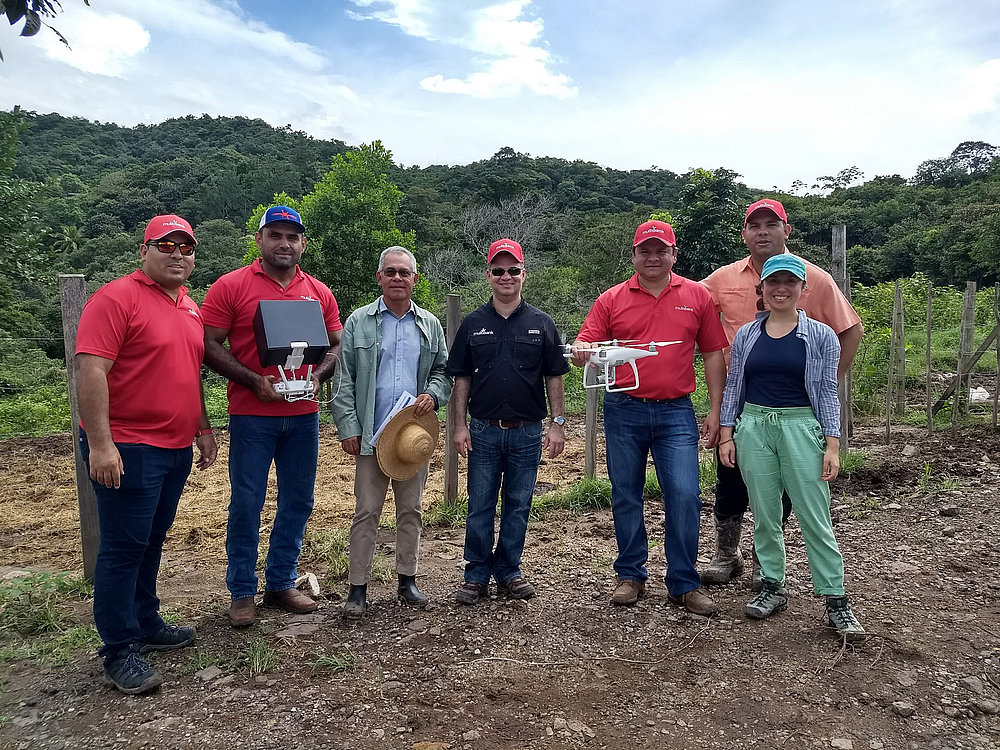
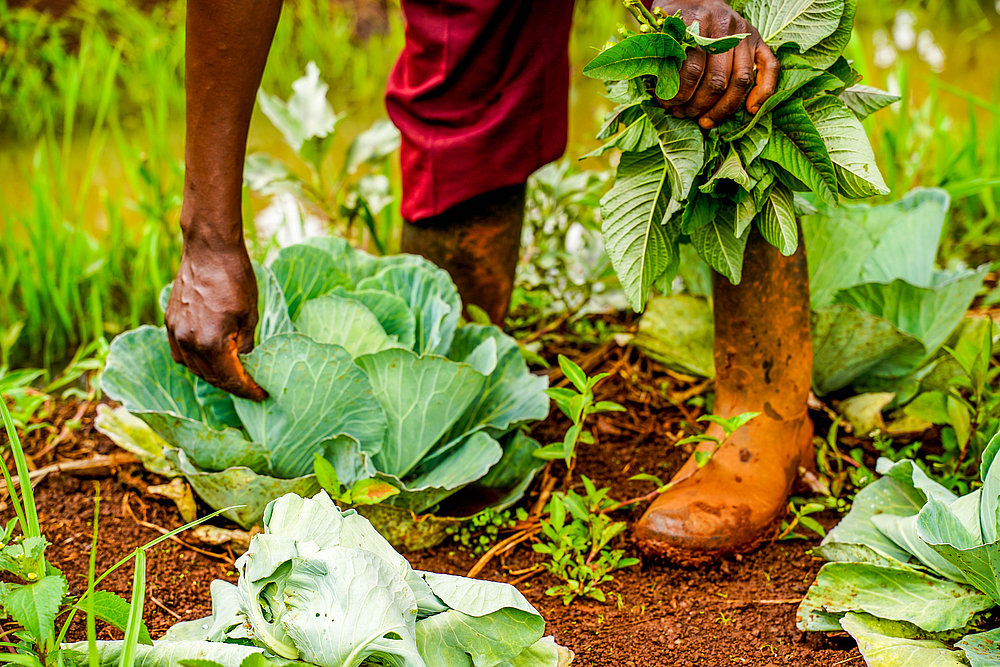
Through these technical assistance projects, the Development Facilities support the fund’s target groups with the knowledge and tools needed to implement sustainable business practices that protect biodiversity, ensure the responsible use of natural resources, and help mitigate and adapt to the effects of climate change. In this way, companies, partner institutions, and their clients can expect to see improvements in their overall productivity and sustainability.
In addition, the Development Facilities also create and support knowledge-sharing platforms, stakeholder dialogues and sector initiatives, where relevant ecosystem players such as investors, government agencies, producers, financial institutions, local associations, NGOs and industry leaders convene to jointly create solutions that promote a green economy.
If you would like to learn more about the fund’s Development Facility in Latin America and the Caribbean, you may find more information in the Pitchbook. A similar pitchbook for the sub-Saharan Africa Development Facility will be available, soon.
For general terms and conditions of the Facility, click here.
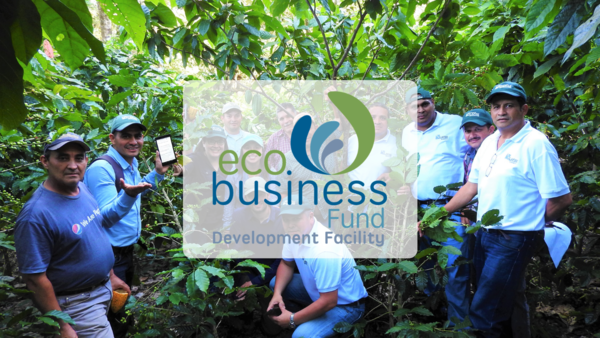
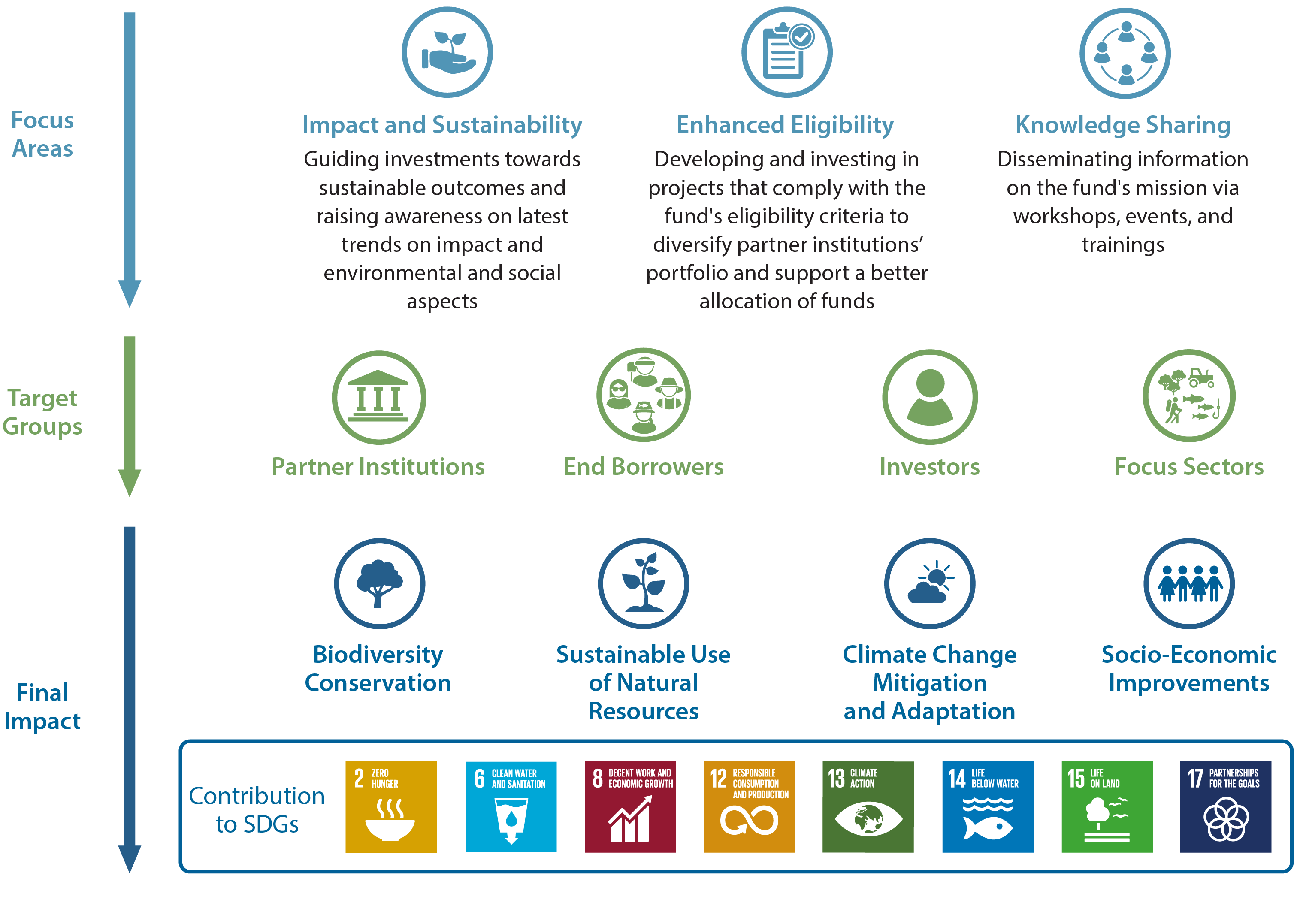
The Development Facilities work hand-in-hand with the sub-funds, its investees, and other players in the green finance sphere to pursue the eco.business Fund’s mission.
The Development Facilities are managed by Finance in Motion, the Advisor to the eco.business Fund.
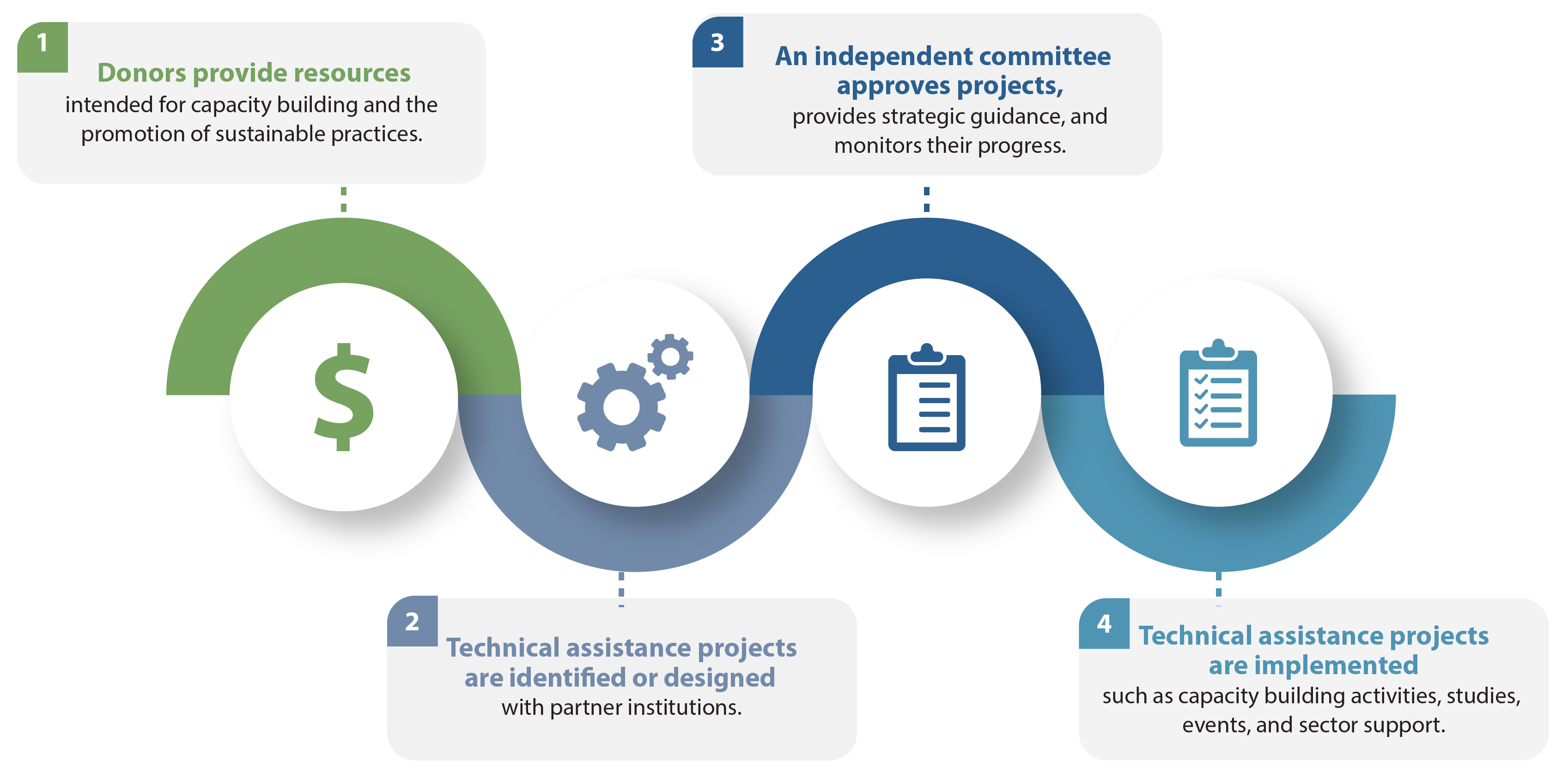
The Development Facility for Latin America boasts a track record of completed and ongoing projects which reflect its mission and scope of activities:
For more information on these and other projects, please visit our subpage News.
Please also have a look at a summary of our projects in Latin America from 2017-2020.
The Development Facility for sub-Saharan Africa already has a track record of completed and ongoing projects which reflect its mission and scope of activities:
*Figures as of September 2023, based on eco.business Fund activities in Latin America and sub-Saharan Africa
All other figures as of September 2023, based on eco.business Fund activities in Latin America
Individual Technical Assistance: This type of cooperation aims to enable Partner Institutions to promote and apply sustainable business and consumption practices through access to finance. Indicative activities include assistance in: product implementation, portfolio screening of potential investees, implementation of credit assessment technologies of sustainable businesses and staff training, among others.
Financial Sector Support: This type of cooperation is focused on developing sector partners, such as financial sector institutions (like central banks, banking associations), business sector institutions (e.g. business associations, cooperatives, incubators) as well as enabling actors such as technology developers or multi-stakeholder platforms. The aim is broadly to foster the development of an enabling and sustainable business environment.
Research and Development Projects: The DF facilitates market studies as well as the development and pilot-testing of new tools, products and instruments of the fund, such as guarantees, local currency lending instruments and bonds. The DF also finances country studies that are required for the expansion of the Sub-Fund to new countries and that support impact and evaluation exercises where applicable. Finally, the DF supports the development of concepts and strategies that support the Fund’s mission overall.
All figures (%) as of September 2023 based on eco.business Fund activities in Latin America and sub-Saharan Africa
In the endeavor to amplify the fund’s impact, the Development Facilities provide different types of technical assistance to the fund’s partners and end borrowers while simultaneously strengthening its four priority sectors. The technical assistance offered by the facilities directly respond to stakeholder needs. It can range from implementing Environmental and Social Management Systems to event sponsorship and financing for training and research opportunities.
The eco.business Fund Development Facility for Latin America and the Caribbean has published a special report to mark its 5th anniversary.
The report describes the milestones achived by the facility over the past 5 years and tells the story of a sustainable transformation of the financial sector in Latin America and the Caribbean.
Read the full report.
Operating alongside the fund’s investment activities are the eco.business Development Facility for Latin America and the Caribbean and the Development Facility for sub-Saharan Africa. Both Facilities work to maximize and deepen the impact of the fund in their respective regions. They support financial partner institutions, companies and producers through a broad array of tailored technical assistance projects designed to promote the adoption of sustainable business practices. These projects range from improving environmental and social risk management capacities within local financial institutions, providing training sessions on sustainable production practices for producers, supporting corporates in sustainable sourcing strategies to conducting feasibility studies for sustainable tree nurseries as well as country markets and deforestation assessments studies.


Through these technical assistance projects, the Development Facilities support the fund’s target groups with the knowledge and tools needed to implement sustainable business practices that protect biodiversity, ensure the responsible use of natural resources, and help mitigate and adapt to the effects of climate change. In this way, companies, partner institutions, and their clients can expect to see improvements in their overall productivity and sustainability.
In addition, the Development Facilities also create and support knowledge-sharing platforms, stakeholder dialogues and sector initiatives, where relevant ecosystem players such as investors, government agencies, producers, financial institutions, local associations, NGOs and industry leaders convene to jointly create solutions that promote a green economy.
If you would like to learn more about the fund’s Development Facility in Latin America and the Caribbean, you may find more information in the Pitchbook. A similar pitchbook for the sub-Saharan Africa Development Facility will be available, soon.
For general terms and conditions of the Facility, click here.


The Development Facilities work hand-in-hand with the sub-funds, its investees, and other players in the green finance sphere to pursue the eco.business Fund’s mission.
The Development Facilities are managed by Finance in Motion, the Advisor to the eco.business Fund.

The Development Facility for Latin America boasts a track record of completed and ongoing projects which reflect its mission and scope of activities:
For more information on these and other projects, please visit our subpage News.
Please also have a look at a summary of our projects in Latin America from 2017-2020.
The Development Facility for sub-Saharan Africa already has a track record of completed and ongoing projects which reflect its mission and scope of activities:
*Figures as of September 2023, based on eco.business Fund activities in Latin America and sub-Saharan Africa
All other figures as of September 2023, based on eco.business Fund activities in Latin America
Individual Technical Assistance: This type of cooperation aims to enable Partner Institutions to promote and apply sustainable business and consumption practices through access to finance. Indicative activities include assistance in: product implementation, portfolio screening of potential investees, implementation of credit assessment technologies of sustainable businesses and staff training, among others.
Financial Sector Support: This type of cooperation is focused on developing sector partners, such as financial sector institutions (like central banks, banking associations), business sector institutions (e.g. business associations, cooperatives, incubators) as well as enabling actors such as technology developers or multi-stakeholder platforms. The aim is broadly to foster the development of an enabling and sustainable business environment.
Research and Development Projects: The DF facilitates market studies as well as the development and pilot-testing of new tools, products and instruments of the fund, such as guarantees, local currency lending instruments and bonds. The DF also finances country studies that are required for the expansion of the Sub-Fund to new countries and that support impact and evaluation exercises where applicable. Finally, the DF supports the development of concepts and strategies that support the Fund’s mission overall.
All figures (%) as of September 2023 based on eco.business Fund activities in Latin America and sub-Saharan Africa
In the endeavor to amplify the fund’s impact, the Development Facilities provide different types of technical assistance to the fund’s partners and end borrowers while simultaneously strengthening its four priority sectors. The technical assistance offered by the facilities directly respond to stakeholder needs. It can range from implementing Environmental and Social Management Systems to event sponsorship and financing for training and research opportunities.